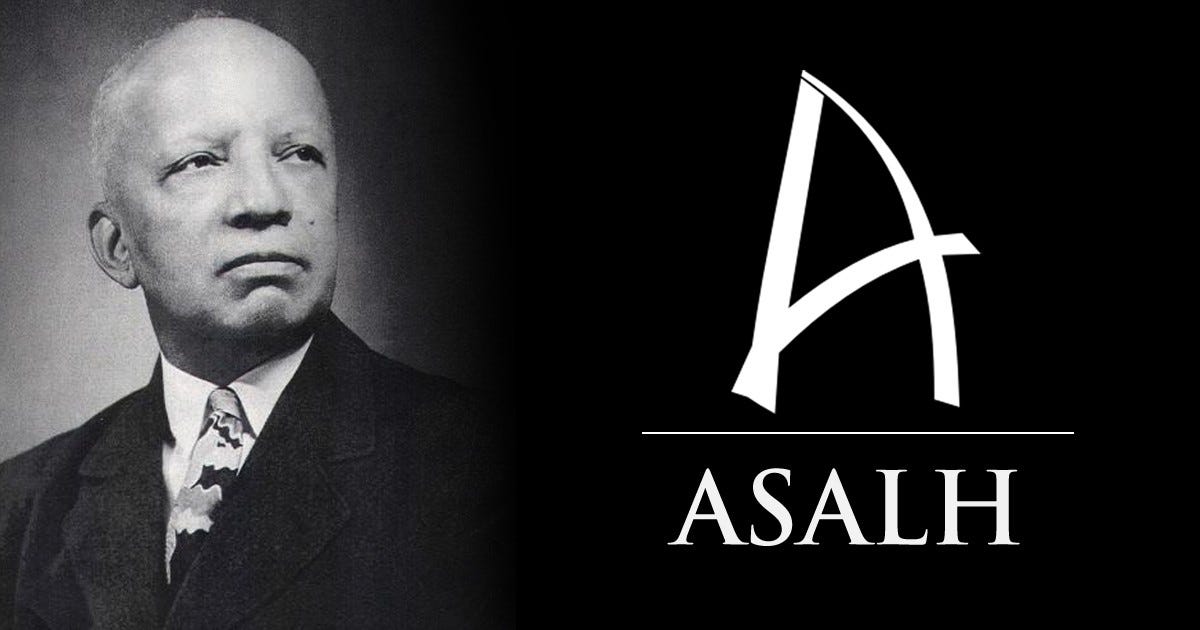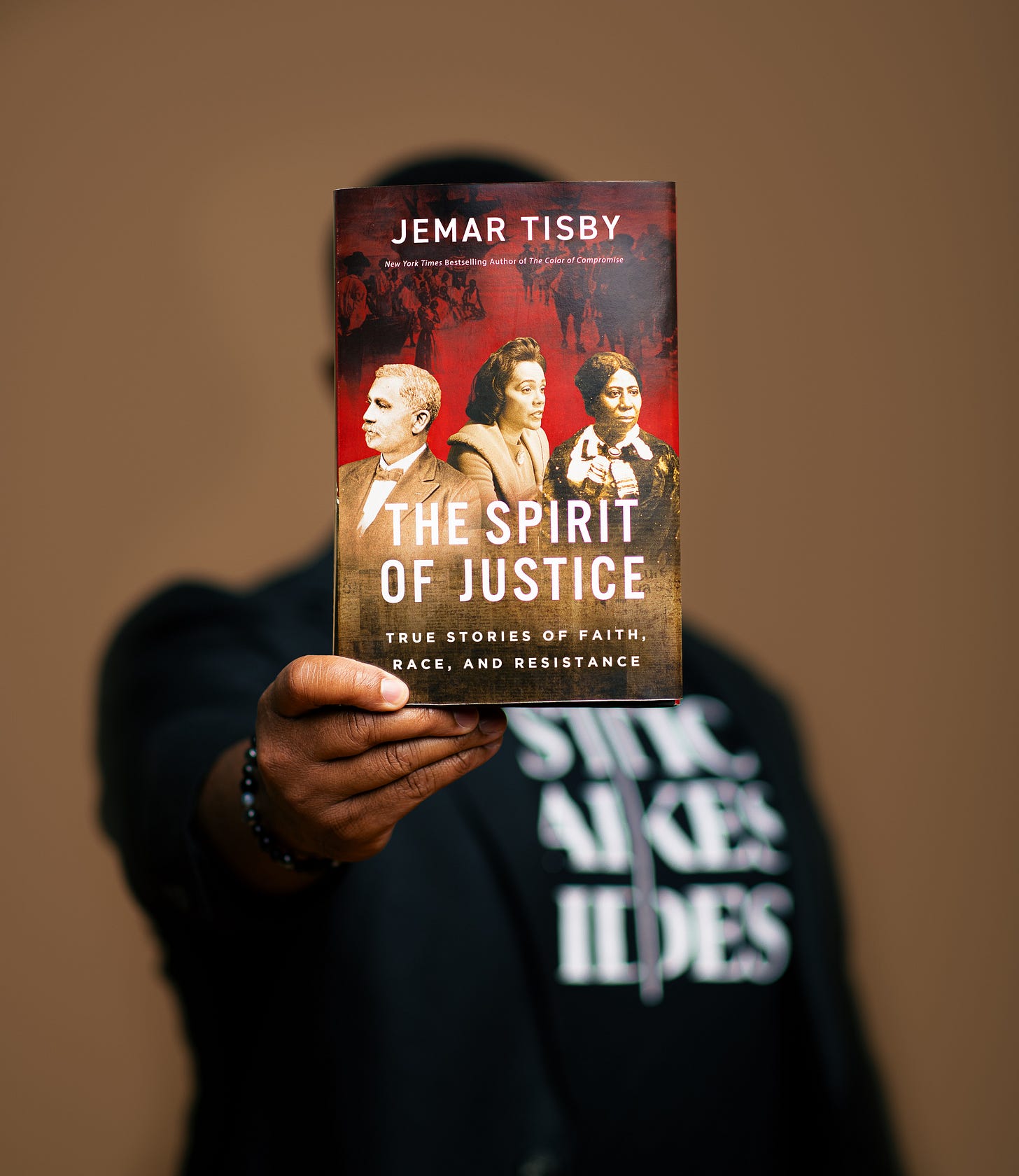I share about Black history all year long of you appreciate learning these stories, help me keep it going become a paid subscriber today.
Every year, Black History Month has an official theme.
My frustration is that most people seem to have no clue what it is or even that it exists.
The theme for Black History Month 2025 is “African Americans and Labor.”
This theme does not come from a random group with no jurisdiction to determine a focus for the month.
It comes from the Association for the Study of African Life and History (ASALH—pronounced uh-SAHL-uh).
This is the organization founded by Carter G. Woodson, the Black history who founded Negro History Week in 1926 which later expanded to Black History Month in 1976.
Woodson and his compatriots decided early on to provide annual themes to help bring focus to the vast field of Black historical events and achievements.
According to ASALH, these themes are not mandates but helpful guides.
“The intention has never been to dictate or limit the exploration of the Black experience, but to bring to the public’s attention important developments that merit emphasis.”
The fact that more people don’t know this year’s Black History Month theme and likely do not even know about ASALH or that the organization puts forth a theme every year, speaks to larger problems.
Disconnection from Black Intellectual Traditions
It reveals our disconnection from Black intellectual traditions. Organizations like ASALH are not relics of the past; they are living institutions that shape how we understand and engage with history today.
Carter G. Woodson founded the Association for the Study of African American Life and History (ASALH) in 1915 with a clear mission: to promote, research, preserve, interpret, and disseminate information about Black life, history, and culture.
This wasn’t just an academic endeavor; it was a radical act of reclamation in a time when Black contributions were systematically erased from historical narratives.
Yet today, many people who actively celebrate Black History Month have never heard of ASALH.
This disconnect isn’t just about a missing fact—it’s about being cut off from a lineage of Black scholars, activists, and thinkers who laid the groundwork for how we even conceptualize Black history.
Black intellectual traditions aren’t confined to the past—they are ongoing, evolving, and deeply relevant.
Institutions such as ASALH enshrine the Black intellectual tradition as a legacy to enrich people throughout subsequent generations.
Many of the frameworks for our discussions on race, justice, and identity trace their roots back to Black intellectual organizations to ASALH and others such as the Association of Black Women Historians (ABWH), the SNCC Legacy Project, the National Council of Negro Women (NCNW), and the African American Intellectual History Society (AAIHS).
Yet their names often don’t appear in mainstream conversations during Black History Month.
When we overlook institutions like ASALH, we inadvertently reinforce the idea that Black history is only about past events or iconic figures, rather than a vibrant, ongoing intellectual tradition that demands engagement beyond the month of February.
Erosion of Collective Memory
The ignorance about Black History Month themes also signals an erosion of collective memory, where the origins of even well-known observances like Black History Month become obscured, leaving us unmoored from the very legacies we claim to honor.
Collective memory is more than just recalling facts; it’s about the shared stories and narratives that shape our identity as a community.
Black History Month was never meant to be a generic celebration of “Black excellence” in the abstract. It was rooted in a specific purpose and context—to encourage the study of African American history at a time when it was actively suppressed.
Even the transition from Negro History Week to Black History Month did not simply happen by itself. It was the result of sustained, intentional effort to promote an overlooked and undervalued people and their stories.
But over time, this origin story has faded from popular consciousness.
Without consistent engagement with its roots, Black History Month risks becoming more of a performative ritual than a reflective practice.
When we lose the roots of why something exists, we lose the power it was meant to hold.
Black History Month is not just about commemoration; it’s about continuity.
Reconnecting with its origins and ASALH, the organizations that steward its legacy, is essential to keeping that continuity alive.
Read more about this year’s Black History Month theme HERE.
Donate to ASALH HERE.
How does knowing the theme of “African Americans and Labor” affect the way you honor and commemorate Black History Month. Share your ideas in the comments.
You can learn about more than 40 Black historical events and individuals from all eras of U.S. history in my latest book The Spirit of Justice: True Stories of Faith, Race, and Resistance.







Thank you much for this valuable information. I never knew about ASALH.
I appreciate this information. I am one of those adults who never learned about ASAlH and the themes of Black History Month. I definitely see how labeling months can be a way to reinforce performative rituals rather than reflective practice. Labeling gives the appearance of respect that does not play itself out in the restrictive systems that are built on disrespect and exploitation based on race. I am grateful for your weekly commitment to inform listeners of urgent issues via The Convocation. I appreciate all four voices--Diana Butler Bass, Kristin DuMez, Robby Jones and yours. Thank you.